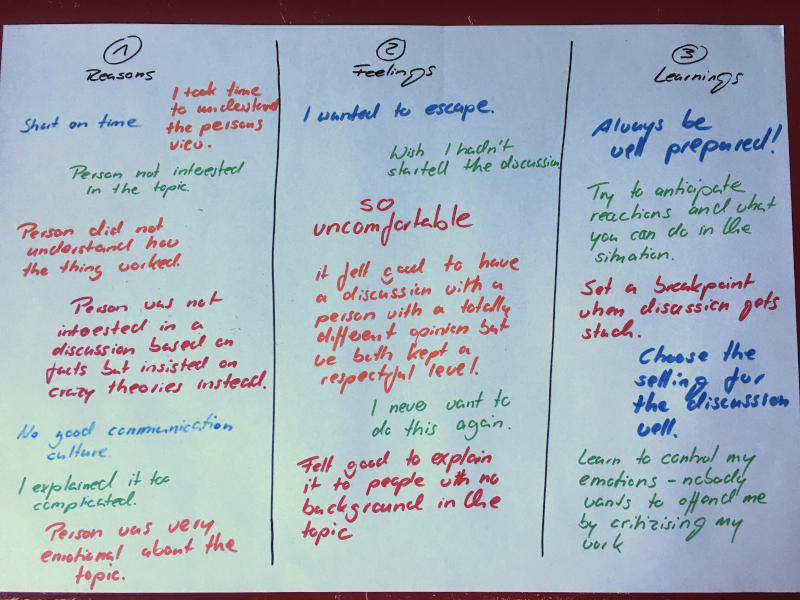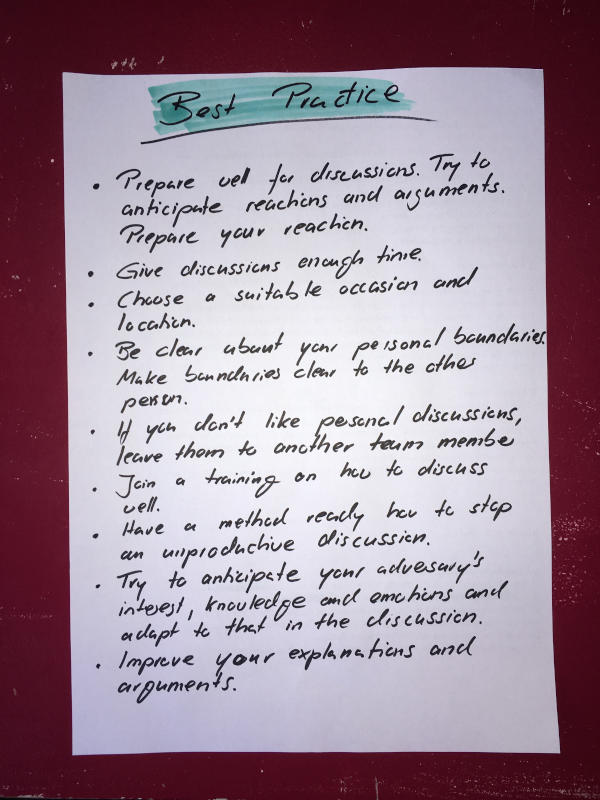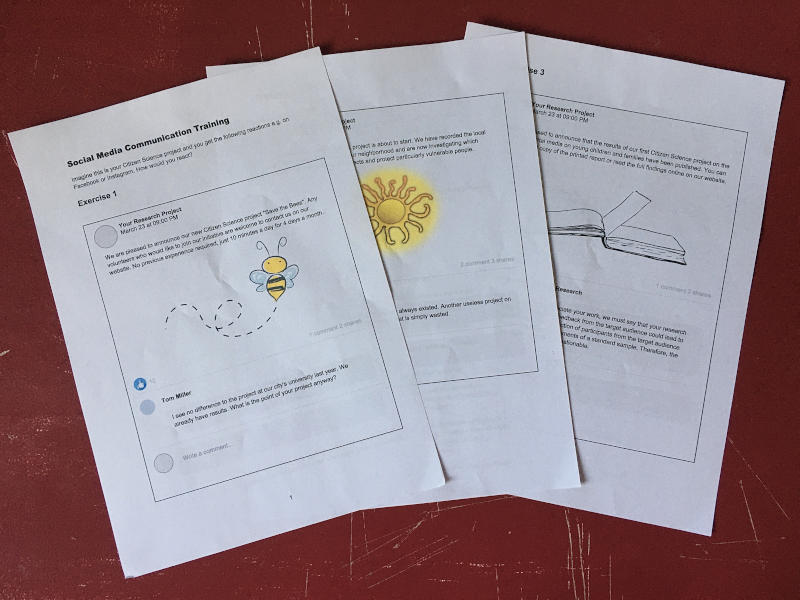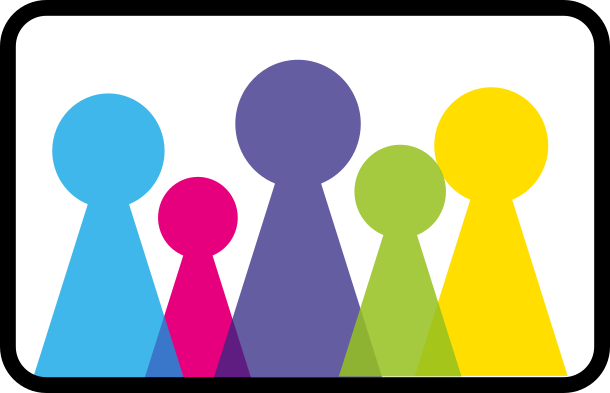Aims of the activity and description of target group
In this activity we look at how to deal with disagreements or disputes in a Citizen Science project. These can occur when you present the project to the public or there can be disagreements between participants. The activity shows whether you are ready to participate in a public debate. This activity is particularly helpful if you are working on a controversial topic.
Resources, Materials needed
- Worksheet Module2_4-3-Social_Media_Training.pdf (printed or online)
- Paper, pen, color pencils
Duration
60 minutes
Step 1 – Group discussion (with other participants or colleagues) (25 minutes)
Take 5 minutes and think about examples from your personal experience where you had good discussions and where you had problematic discussions, either about your work or a private topic.
- What were the reasons why the discussions took a certain course?
- How did you feel in this situation?
- What did you learn from these discussions?
Discuss and summarize the results in the group and collect them on paper for each of the three aspects.

Step 2 – Gather best practices (10 minutes)
From the results of your group discussion put together a list of best practices, how a discussion or debate can produce valuable results.

Step 3 - Social Media Communication Training (15 minutes)
Take Worksheet Modul2_4-3-Social_Media_Training.pdf printed or as an online version and go through the 3 exercise scenarios. For each scenario evaluate:
- Have you ever been in a similar situation?
- What could be a good reaction?
- What could be problematic reaction?

Step 4 – Reflection (10 minutes)
Summarize your impressions:
- Do you feel ready for discussions about your topic either on Social Media or in personal?
- Do you want to get involved in these discussions?
- Do you feel that the insight that you get from these discussions is valuable for your work?
If you want to practice your debating skills further, join a discussion on Social Media and see how people react.
Learning Outcomes - which skills are addressed?
This activity focuses the participants on their experiences with discussions and shows them what possible reactions can occur in a public environment, such as on Social Media. The activity allows participants to better assess whether or not they want to be involved in such discussions or debates in their project. If the participants do not feel comfortable with this, someone else in the team should take over this part.
How do you check the outcomes are reached?
Participants are aware of their own attitude to public discussions and can indicate whether or not they wish to participate in public discussions in the project.
De-Briefing questions
- What influence have discussions had on your academic work?
- How well do you cope with discussions and debates in a public setting?
- Where could you improve?
- Is there someone in your project team who could take on this task if you do not want to?
Further links and readings
- García-Carmona, Antonio (2023): Scientific Thinking and Critical Thinking in Science Education. https://link.springer.com/article/10.1007/s11191-023-00460-5 (last viewed 03/25/2024)
- Heston, Klare (2023): How to Be Good at Group Discussion. https://www.wikihow.com/Be-Good-at-Group-Discussion (last viewed 03/25/2024)
- Norberg, J. et al. (2022): Failures to disagree are essential for environmental science to effectively influence policy development. Ecology Letters, 00, 1– 19. https://doi.org/10.1111/ele.13984 (last viewed 03/25/2024)
- Rüfenacht, S. et al. (2021): Communication and Dissemination in Citizen Science. https://link.springer.com/chapter/10.1007/978-3-030-58278-4_24 (last viewed 03/25/2024)
- Thornton, Jacqui (2021): When Finnish researchers took on the Twitter trolls. https://www.nature.com/articles/d41586-021-03407-4 (last viewed 03/25/2024)
